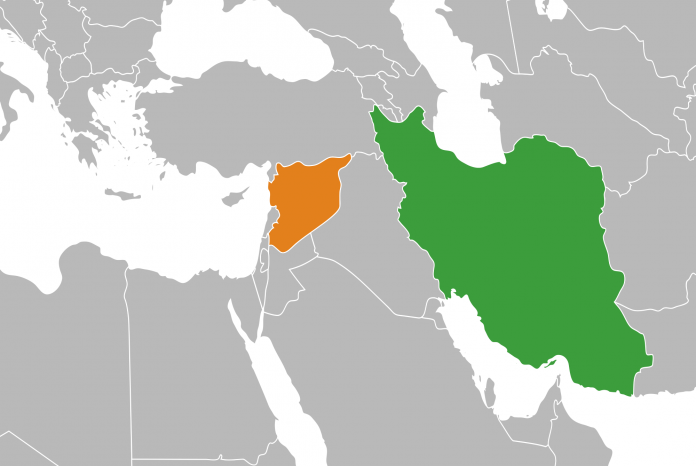
Posted On : Nov 7 2024
Iran`s Military Action in Syria: Escalating Tensions and Regional Dynamics
Recent reports confirm Iran`s involvement in a military strike on targets in Syria, marking another significant development in the complex geopolitical landscape of the Middle East. The attack, purportedly targeting positions affiliated with opposition groups, underscores Iran`s deepening involvement in the Syrian conflict and its broader regional ambitions. As the dust settles and global attention turns to the ramifications of this latest escalation, it`s imperative to analyze the implications of Iran`s actions on Syria`s already volatile situation and the wider regional dynamics.

The Syrian conflict, now in its second decade, has evolved into a multifaceted proxy war involving various international and regional actors. Iran has long been a key supporter of the Assad regime, providing military assistance, financial backing, and logistical support to bolster Damascus against rebel forces and jihadist groups. Tehran's strategic interests in Syria are manifold, including its desire to maintain a foothold in the Levant, counter the influence of rival regional powers, and safeguard its ally, Hezbollah, in neighbouring Lebanon.
The recent military strike attributed to Iran underscores its determination to assert influence and protect its interests in Syria amidst ongoing instability and external pressures. With the Assad regime facing internal challenges, including sporadic violence, economic hardship, and territorial fragmentation, Iran's support becomes increasingly crucial for Damascus's survival. By targeting opposition groups and consolidating control over key areas, Iran aims to bolster the Assad regime's grip on power and secure its own strategic objectives in the country.
However, Iran's military intervention in Syria is not without risks and repercussions. The Syrian conflict is a highly complex and fluid theatre, where competing interests often collide, and alliances are subject to change. Iran's actions risk further exacerbating tensions with Israel, a staunch opponent of Tehran's regional ambitions and a frequent target of Iranian-backed proxies operating in Syria. Israel has repeatedly conducted airstrikes on Iranian and Hezbollah targets in Syria, aiming to prevent the transfer of advanced weapons to Hezbollah and degrade Iran's military infrastructure in the country.
Moreover, Iran's military escalation in Syria could also heighten tensions with other regional players, including Turkey and Gulf Arab states, who have vested interests and competing agendas in Syria's future. Turkey, in particular, has intervened militarily in northern Syria to counter Kurdish groups allied with the United States, further complicating the already volatile situation on the ground. Any escalation of hostilities risks drawing these regional powers deeper into the Syrian quagmire and fuelling a broader conflagration with unpredictable consequences.
The international community, meanwhile, faces a daunting challenge in managing the fallout from Iran's military actions in Syria and preventing further escalation. Efforts to broker a political solution to the Syrian conflict have thus far been stymied by competing interests and entrenched positions, leaving millions of Syrians trapped in a protracted humanitarian crisis with no end in sight. Diplomatic initiatives, backed by key stakeholders, are urgently needed to de-escalate tensions, facilitate humanitarian access, and pave the way for a comprehensive peace settlement based on dialogue and compromise.
In conclusion, Iran's recent military strike in Syria underscores the complex web of interests and alliances shaping the dynamics of the Middle East. While Tehran seeks to assert its influence and protect its strategic interests in Syria, its actions risk further destabilizing an already volatile region and triggering a wider conflagration with far-reaching consequences. The international community must redouble its efforts to find a diplomatic solution to the Syrian conflict and address the root causes of instability to prevent further bloodshed and suffering.
No Comments Added




















